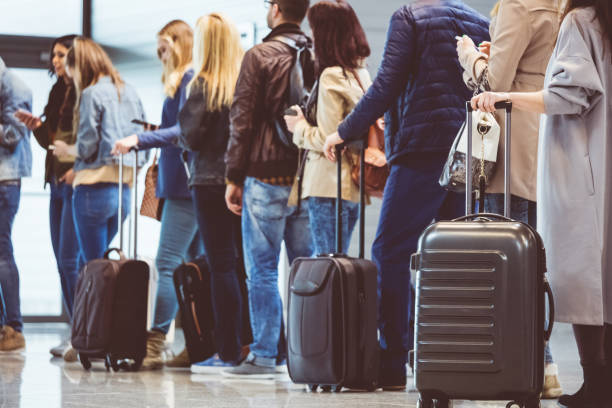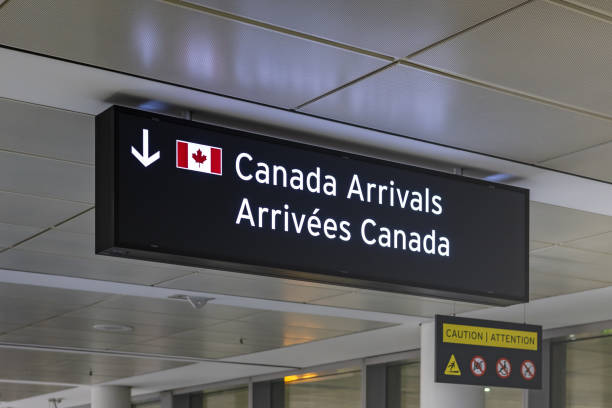In recent years, the United States has experienced a growing demand for skilled labor in its infrastructure and construction sectors. To fill the gap, U.S. employers are now offering relocation incentives up to $59,999 per year to qualified foreign workers through the Construction Visa Program.
This is a golden opportunity for people in developing countries—including Africa, Asia, and Latin America—who are ready to work hard, build a better life, and legally move to America with a steady, respectable income.
In this in-depth article, you’ll discover:
-
What the U.S. Construction Visa Program is
-
Who qualifies
-
The application process
-
Types of construction jobs available
-
Salary expectations and relocation benefits
-
Step-by-step guide to apply and relocate
-
Success stories
-
Common mistakes to avoid
-
Frequently asked questions
What is the U.S. Construction Visa Program?
The Construction Visa Program is part of broader U.S. employment-based immigration efforts that allow American companies to sponsor foreign workers in labor-intensive fields like construction, manufacturing, and maintenance. Most workers under this program enter the U.S. using visa types such as:
-
H-2B Visa (for temporary non-agricultural labor)
-
EB-3 Visa (for permanent skilled and unskilled labor)
-
TN Visa (for Canadian and Mexican professionals under NAFTA/USMCA)
Under this program, construction companies or agencies submit documentation to sponsor skilled or semi-skilled foreign workers. Once approved, these workers receive visas, salaries, health coverage, and in some cases free accommodation and travel allowances.
Why $59,999 Is Offered as an Incentive
Construction work in the U.S. is physically demanding and requires dependable manpower. However, the domestic workforce shortage, especially in rural or suburban states, means employers are willing to offer up to $59,999 per year in salary and relocation benefits to foreign workers who meet minimum criteria.
This amount often includes:
-
Hourly wages ($18–$30/hour depending on experience)
-
Overtime pay
-
Performance bonuses
-
Housing support
-
Transportation
-
Visa sponsorship and processing
-
Basic insurance coverage
Who Qualifies for the Program?
You do not need a university degree to apply for most construction jobs, but you must meet certain conditions:
1. Age
Applicants must be between 18–55 years old.
2. Health
Physically fit and able to work in demanding environments.
3. Experience
At least 1–2 years of experience in a construction-related trade (carpentry, masonry, plumbing, roofing, painting, welding, etc.).
4. Language
Basic English communication skills are preferred but not mandatory.
5. Clean Background
No criminal record and willing to undergo medical and background screening.
High-Demand Construction Jobs Under the Program
These are some of the roles U.S. employers often sponsor under the Construction Visa Program:
-
General Laborers
-
Bricklayers
-
Concrete Finishers
-
Scaffolders
-
Painters
-
Tile Setters
-
Pipefitters
-
Electricians
-
Roofers
-
Framers
-
Heavy Equipment Operators
-
Welders
-
Plumbers
Some employers also hire:
-
Safety Coordinators
-
Construction Supervisors
-
Project Assistants
These roles may require additional certifications or training.
Step-by-Step Guide to Apply and Get Sponsored
Here’s how to go from your home country to earning $59,999 per year in the U.S. construction industry:
Step 1: Research Employers That Sponsor
Use official and trusted job portals like:
Search with keywords like:
-
“Construction visa sponsorship”
-
“H-2B construction jobs USA”
-
“Employer willing to sponsor visa”
Step 2: Prepare Your Documents
-
International Passport (valid for 6+ months)
-
Work Experience Certificates
-
Trade Licenses or Training Certificates
-
Basic Resume in English
-
Reference Letters
-
Medical Report (optional, sometimes needed later)
Step 3: Apply for Jobs Online
Email or apply directly to hiring agencies. Include:
-
Cover letter
-
Resume
-
Clear statement that you’re ready for relocation
-
Any construction photos or samples (optional but helpful)
Step 4: Get Interviewed
Employers may conduct phone or video interviews. Be ready to:
-
Talk about your work experience
-
Share knowledge about tools, materials, and safety
-
Answer simple English questions
Step 5: Receive Job Offer and Visa Sponsorship
If selected:
-
The employer sends a job offer letter
-
They apply for H-2B or EB-3 petition
-
You receive a Visa Interview Date and Form I-129 approval
Step 6: Attend Visa Interview
Prepare:
-
Job offer letter
-
Valid passport
-
DS-160 confirmation
-
Visa fee receipt
-
Photos
-
Proof of ties to your home country
If approved, your visa is printed, and you’re ready to relocate.
Step 7: Travel and Start Work
The employer may cover:
-
Airfare
-
Accommodation
-
Work gear or clothing
-
Orientation training
Upon arrival, you’ll be:
-
Taken to your work site
-
Registered with payroll
-
Briefed on workplace safety rules
Benefits of Working in the U.S. Construction Industry
-
Legal employment and tax benefits
-
Overtime pay and job stability
-
Family sponsorship options after years of service
-
Pathway to green card via EB-3
-
Opportunity to earn and save more
-
Experience working in the world’s largest economy
Mistakes to Avoid
-
Never pay agents or middlemen promising jobs
-
Do not submit fake documents
-
Avoid job offers that don’t come with a legal contract
-
Don’t accept unpaid “internships” with no pathway to visa
-
Avoid overstaying a visa once expired
-
Always verify employer legitimacy via U.S. Department of Labor or embassy
Real-Life Success Stories
John from Nigeria
John was a tiler earning $80/month locally. He applied to a Texas-based construction firm through a legal recruiter on Indeed. Six months later, he landed in Houston and started earning $5,000/month, with health insurance and company-paid housing.
Maria from the Philippines
Maria worked as a painter in Manila. She applied through the H-2B program. Now she earns $22/hour in Arizona, and her employer is helping her apply for a green card.
Frequently Asked Questions (FAQ)
Q: Can I bring my family with this visa?
A: Not under H-2B, but EB-3 visas allow spouse and child sponsorship.
Q: Do I have to pay for flights or housing?
A: Many employers provide free or discounted housing and travel support.
Q: How long can I stay?
A: H-2B visas last up to 3 years. EB-3 leads to permanent residency.
Q: What if I lose my job in the U.S.?
A: You’ll have a short grace period to find another sponsor or return home.
Q: Can I apply again if I’m rejected?
A: Yes. You can reapply with updated documents or a new job offer.
Common Mistakes to Avoid When Relocating Abroad for Work
Relocating to another country through a job opportunity or visa sponsorship is a major life decision that comes with many benefits. However, without proper planning and awareness, it can also come with challenges that may derail your journey. Below are the most common mistakes to avoid when relocating abroad for work and how you can prepare to ensure a smooth transition.
One. Using Unverified Agents or Agencies
One of the most common and costly mistakes is trusting unlicensed agents who promise job placements abroad. Many people fall victim to scams where fake agents collect huge sums of money and disappear. Some might even give you false documents that will lead to visa rejections or legal problems.
What to do instead is to apply directly through verified job boards, government websites, or directly to employers. Always verify if the employer is registered and approved to sponsor foreign workers.
Two. Submitting False or Incomplete Documents
Using fake certificates or falsifying your experience might seem like a shortcut to getting a visa, but it often leads to serious consequences. Embassies and immigration departments perform background checks, and if you are caught, your application will be denied, and you may be blacklisted.
Always submit genuine and complete documents. Be transparent about your qualifications and work experience, even if limited. Honesty builds trust and improves your chances in the long run.
Three. Accepting a Job Without Researching the Employer
Some people accept job offers without checking whether the employer is real, whether the company has a good reputation, or if the job role is suitable. This can lead to disappointment, mistreatment, or even becoming a victim of labor exploitation.
Before you accept any job, research the company online, ask for a signed job contract, and confirm that the company is authorized to sponsor foreign workers. You can also look for reviews or reach out to past employees on professional networks.
Four. Ignoring Cultural and Legal Differences
Moving to a new country means adjusting to different workplace cultures, social expectations, and laws. Many people struggle when they assume things will work the same way as in their home country. This can create tension in the workplace or even lead to legal issues.
Take time to learn about the local customs, work etiquette, and legal obligations in the country you are moving to. Being respectful and well-informed helps you settle in more quickly and successfully.
Five. Neglecting Health and Medical Requirements
Some countries require proof of good health, certain vaccinations, or medical screenings before approving a visa. Others may require a tuberculosis test, proof of insurance, or a general health check. Not fulfilling these requirements can delay your visa or make it invalid.
Schedule any required medical tests early and keep copies of all reports. Inform the authorities of any ongoing health issues and ensure you have any medications you need for your initial months abroad.
Six. Poor Packing and Travel Preparation
Packing without a plan leads to problems at the airport and after arrival. People often bring unnecessary items or forget essentials like international adapters, official documents, or work gear. Others carry prohibited items that get them in trouble with airport security.
Make a detailed packing checklist. Include all necessary travel documents in your hand luggage. Leave behind items that are easily available or restricted in your destination country. Keep your baggage within airline limits.
Seven. Relying Completely on the Employer for Everything
Even if your employer promises to cover your travel, accommodation, or meals, unexpected delays or issues can arise. Some workers arrive only to discover their housing is not yet ready or their salary will be paid after the first month.
It is important to have some personal savings to cover your expenses during the first few weeks. Carry cash and a backup card. Do not depend entirely on your employer to meet all your initial needs.
Eight. Forgetting to Learn the Language Basics
Even if your job does not require advanced language skills, having a basic understanding of the local language can help you with daily activities such as shopping, taking transport, or talking to supervisors.
Practice key phrases and greetings before moving. You can use mobile apps, watch local TV shows, or attend online language classes to build your confidence.
Nine. Not Making Copies of Important Documents
Losing your passport, visa, or job contract can create major problems, especially in a new country. If you do not have copies or backups, it may take time and effort to replace them.
Make physical and digital copies of your passport, visa, job offer letter, and medical reports. Store them in different places such as a cloud folder, USB drive, and a secure bag.
Ten. Having Unrealistic Expectations
Some people expect instant success or comfort as soon as they arrive. They underestimate the adjustment period, the hard work required, and the emotional toll of being far from home. This can lead to frustration and disappointment.
Keep your expectations realistic. Understand that building a new life takes time. Be open-minded, patient, and willing to adapt to your new environment.
Conclusion
Relocating abroad can transform your life and open doors to better opportunities. However, success does not depend only on getting a visa or a job offer. It also depends on how well you prepare, the choices you make, and your ability to avoid common mistakes. Stay informed, remain honest, and take each step seriously. That way, you can turn your relocation dream into a successful reality.
The U.S. Construction Visa Program offering $59,999 per year is a once-in-a-lifetime opportunity for hard-working individuals looking to build a future abroad. With legal pathways, full relocation support, and strong employer demand, now is the time to act.
By preparing properly, avoiding scams, and applying through the right channels, you can turn your skills into a gateway to live, work, and prosper in America.










